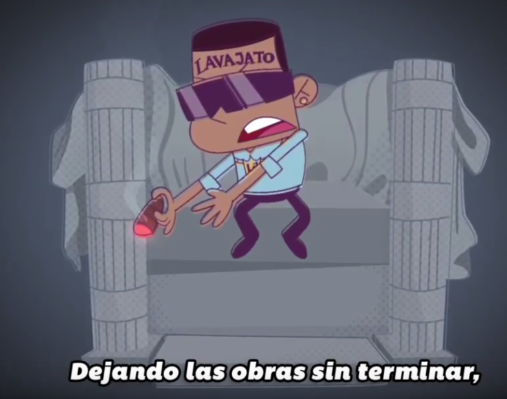
A new UNESCO report confirms what many journalists and researchers have thought: quality journalism is good for democracy, civic engagement and government accountability. Further, public investment in it improves trust from citizens, and promotes human rights and sustainable development.

Alejandro Astesiano was chief of security of the current President of Uruguay, Luis Lacalle Pou, until he was arrested by the Police for leading an organization that falsified documents to obtain passports for Russian citizens. Very quickly, the Uruguayan press obtained the investigative folder of the case which contained more than a thousand Whatsapp chats by the accused.

The CEO of Plop Contenido believes that Ampli is still in an experimental stage, in which he wants to test the premise that it is possible to produce news content with a humorous footprint.

A Paraguayan journalist for the newspaper ABC Color was sued for calumnia and defamation by a lawmaker who the reporter said participated in an attempt to bribe him so that he’d stop investigating a story.
Cybersecurity, legal shields and working in alliances are some of the fundamental factors to consider when conducting journalistic investigations on corruption issues in Latin America, according to speakers on the Corruption Coverage panel, held during the 11th Ibero-American Colloquium of Digital Journalism in Austin, Texas on April 15, 2018.
Brazil is in "red alert" due to the high concentration of audience, of property and geographical location, lack of transparency and economic, political and religious interference in the country's media. This is the main conclusion of the survey on media ownership in Brazil carried out by the Intervozes communication collective in partnership with the international organization Reporters Without Borders (RSF for its acronym in Spanish).
Corruption, a common concern among citizens and journalists from several Latin American countries, will be the theme of an exclusive index for the region that plans to launch next month. Daily Corruption: News Feed & Database will provide quantitative and qualitative data on a range of relative variables for ongoing cases in 29 Latin American and Caribbean nations.
In the week since Revista Factum published a report about the alleged existence of a death squad inside the Salvadoran police, they have received death threats, been targeted by smear campaigns and received attacks trying to take down their website. Independent news site El Faro, which has also reported on alleged extrajudicial killings by the police, has also recently received threats.
On July 12, a Brazilian federal judge sentenced former President Luiz Inácio Lula da Silva to nine and a half years in prison for corruption, obstruction of justice and money laundering in relation to the Lava Jato case, a corruption scheme in at least 12 countries involving several Brazilian companies and politicians in Latin America.
Those involved in the Lava Jato scandal, the bribery scheme formed by Brazilian companies and politicians from at least 12 countries, resorted to sophisticated methods of corruption, such as the use of offshore companies, the creation of accounts in tax havens and overcharges in public works contracts. And of course, they also took care that their actions did not leave a trace.
What appeared to be a case of money laundering done through a network of laundromats and car washes (in Portuguese, lava jato means “pressure washing”), turned out to be the largest corruption network in Brazilian history that ultimately extended to at least 12 countries. It has brought businessmen to justice and has shaken more than one government.
A political scandal that transcends borders, such as Operation Car Wash –the network of corruption and money laundering that originated in Brazil and involves politicians and businessmen from several countries– requires cross-border, collaborative and persistent journalistic work.